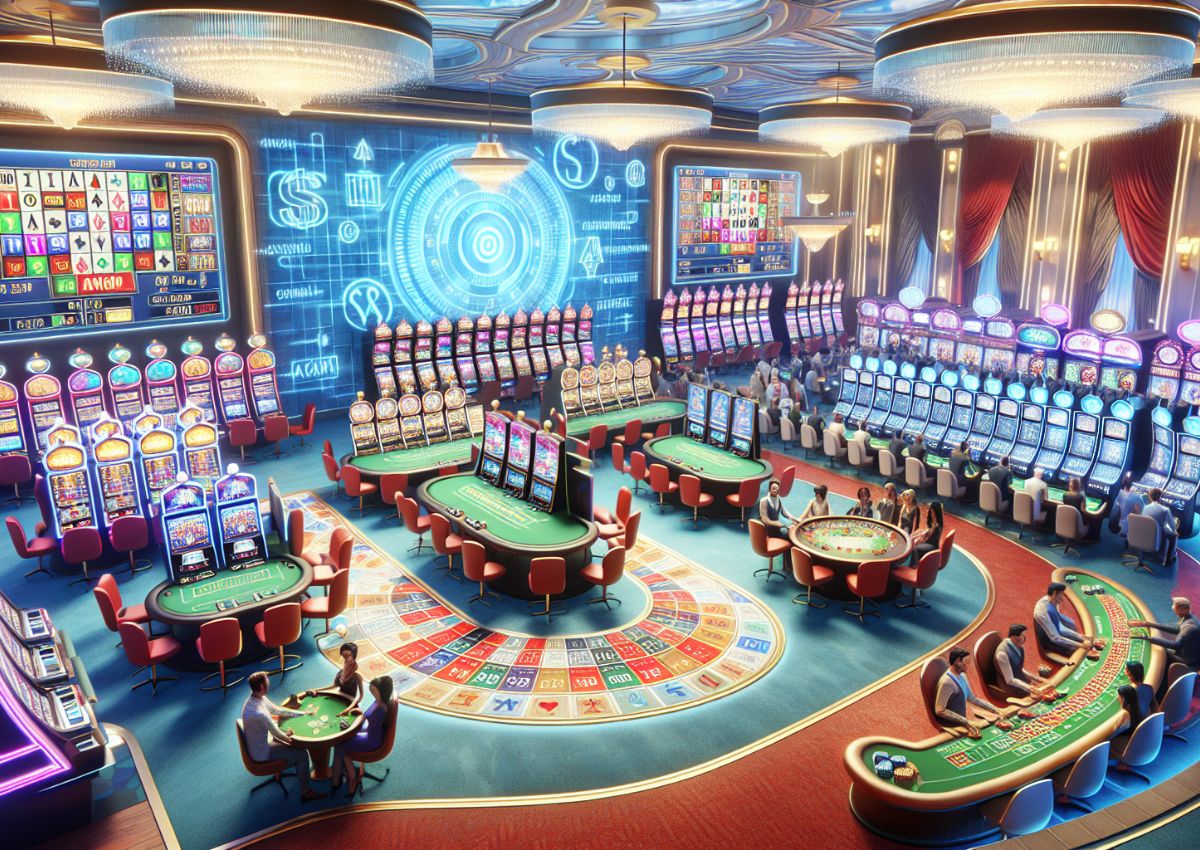
Gambling has been an important part of human recreation for millions of years, developing through societies and eras to become the vibrant casino activities we know today. From the historical Chinese and Romans, who participated in various forms of betting and chance, to the advanced gaming floors of contemporary casinos, the attraction of risk and reward has captivated individuals across the globe. The transition from simple dice games and primitive betting setups to the lavish environments of contemporary casinos reflects major strides in both cultural standards and technological advancements.
As societies evolved, so too did the complexity of gambling activities, with casino games emerging as a unique category of entertainment and excitement. These games have transformed from informal gatherings centered around traditional tables to grand, lavish establishments designed to lure players. Today, we investigate this fascinating journey, examining how traditional practices laid the foundation for the varied and exciting casino games that bring joy to millions worldwide.
spintax
Early Wagering Practices
Betting has significant roots in human history, with evidence of activities of chance tracing back to ancient civilizations. Archaeologists have found that as far back as 3000 BC, the ancient Chinese were using primitive forms of gambling with dice made from ivory. Similarly, ancient cultures of Mesopotamia engaged in betting activities, often relying on the throwing of lots or dice to determine winners. These early forms of betting served not only as entertainment but also played vital roles in social and cultural customs.
The people of Egypt also participated in gambling activities, with games that included betting on the results of various occurrences, including athletic events and spiritual festivals. Items such as dice and depictions of players from ancient tombs demonstrate that betting was a popular pastime. It provided both relaxation and a means of engaging in social interaction, often linked to celebratory occasions or major gatherings. tg888 This behavior revealed the universal appeal of chance and rivalry throughout the ages.
In ancient Rome, wagering became a widespread practice among the populace, as shown in references in texts and the establishment of guidelines around certain games. Romans enjoyed a variety of betting activities, from wagering on chariot races to playing games like modern-day board games. The legal framework surrounding these activities began to take shape, establishing the foundations for gambling regulations that would evolve in the centuries to come. The popularity of gambling during this period set the stage for the development of gambling house games in the future.
The Development of Casino Games
Casino games have gone through significant transformations from their origins to the modern-day entertainment selections. In ancient civilizations, gaming was commonly linked to ceremonial practices, with games of dice found in the ancient Mesopotamian region and betting on the outcomes of events in old Rome. These initial forms of gambling laid the foundation for the structured games we see today. The change from informal gambling to organized games took place as societies began creating rules and venues for wagering, reflecting cultural values and practices.
The Middle Ages saw the rise of card games, which gained recognition among the nobility of Europe nobility. Games like first and the game baccarat became mainstays in social gatherings. The creation of printing technology further aided the spread of playing cards, making them more available to the common people. As gambling houses began to multiply, these card games transformed into different forms that appealed to wider audiences, eventually leading to the establishment of casinos as exclusive venues for gaming.
The 20th century marked a crucial point in the evolution of casino games, with the ascendancy of commercial casinos in Vegas and other gaming hubs. This era saw the introduction of games like slot machines and modern versions of table games, complete with high-quality graphics and intricate betting structures. The advent of online casinos in the 1990s further revolutionized the gaming industry, allowing players to access a wide range of casino games from the comfort of their homes. Today, gambling games go on to progress, blending time-honored elements with state-of-the-art technology to create captivating experiences for players globally.
Contemporary Gambling Regulations
In these years, the environment of gaming laws has developed considerably, especially as technology and internet-based gambling have become more prevalent. Authorities around the globe have introduced numerous regulations and guidelines to guarantee that gambling activities are performed fairly, with responsibility, and clearly. These laws often cover factors such as licensing, advertising, gambler protection, and responsible gambling measures. Authorities aim to mitigate problems such as problem gambling and fraudulent activities while supporting a just gambling environment.
The emergence of internet gambling sites has required a fresh approach to oversight. Many legal areas have created specific internet-based gambling structures that serve online gaming, allowing operators to provide their offerings within the law. These structures often demand operators to obtain permits, adhere to strict security standards, and offer assistance options to help players. By closely observing online activities, authorities can more effectively protect players from potential harm and make sure that gaming is conducted in a protected manner.
Additionally, contemporary gaming regulations are progressively concentrating on responsible gaming strategies. Many gaming establishments and internet-based sites now implement features such as player exclusion, financial limits, and time-outs to help players control their gaming habits. Educational campaigns aimed at educating about the risks of gambling are also widespread. As the sector continues to expand, the emphasis on responsible gambling remains a fundamental principle of regulatory efforts, showing a dedication to promoting a secure and enjoyable gambling experience for all players.
